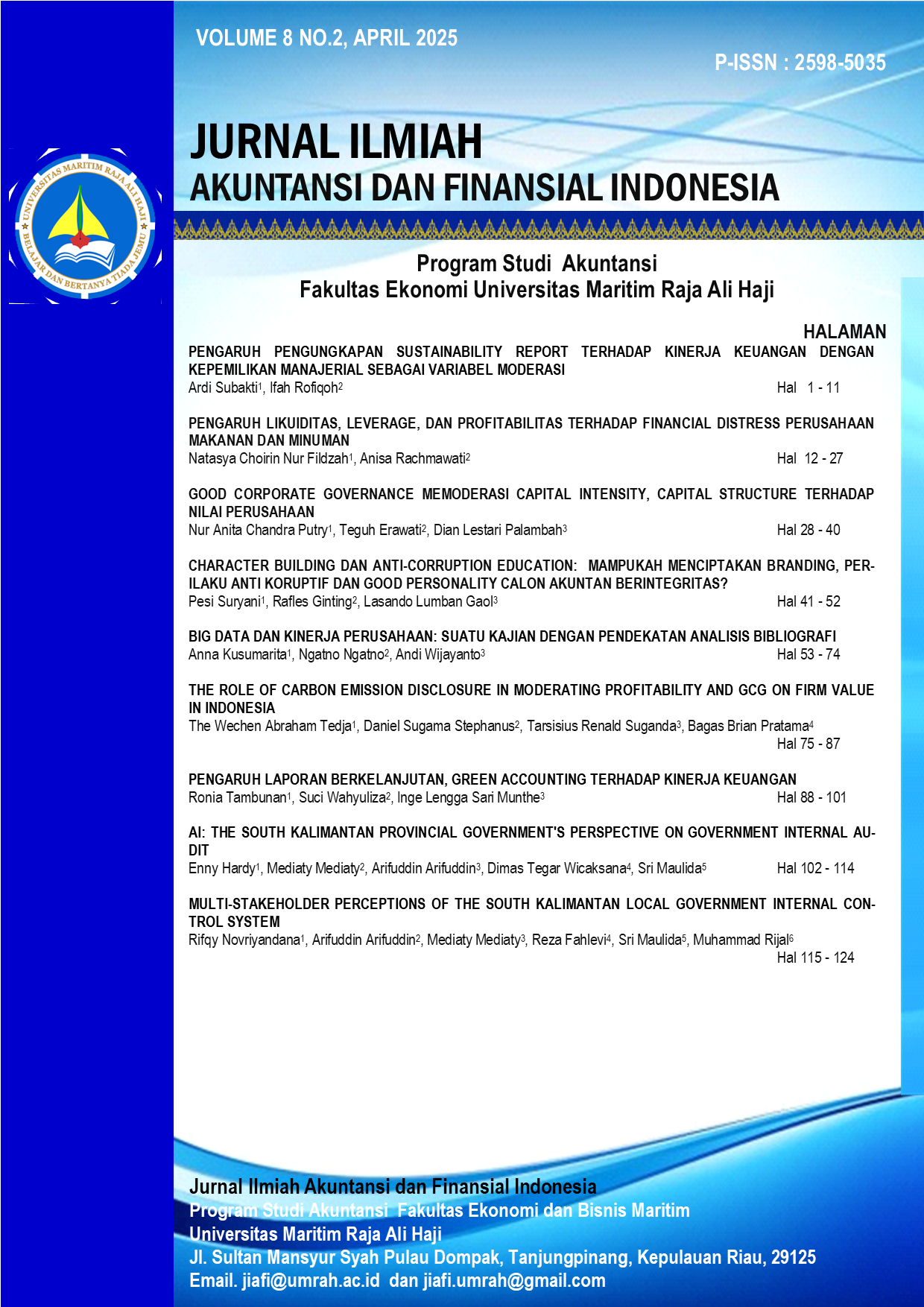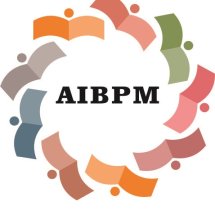Multi-Stakeholder Perceptions of the South Kalimantan Local Government Internal Control System
DOI:
https://doi.org/10.31629/ctkzkx03Keywords:
government, internal control system, South KalimantanAbstract
This study aims to identify the perceptions of multi-stakeholders (internal, external, and expert). Internal perceptions are those held by civil servants within the South Kalimantan Regional Government. The sources of external perceptions include the community, suppliers, journalists, and other stakeholders in South Kalimantan. Expert perceptions are drawn from retirees, members of the police, prosecutors, and other relevant individuals within the South Kalimantan Regional Government. The data analysis technique uses thematic analysis with phenomenological analysis techniques. Based on the analysis, the internal control system in the South Kalimantan Regional Government has shown positive developments, especially in the aspects of employee integrity, simplification of procedures, and utilization of technology. However, some areas require improvement, such as budget transparency, public awareness of complaint mechanisms, and strengthening interactive communication. In addition, there is still a lack of efficiency in providing services. The positive perceptions of internal, external, and expert stakeholders on integrity and service procedures show that the involvement of various stakeholders can improve the quality of internal control. Local governments must expand service digitization as a whole to increase efficiency and reduce opportunities for corruption. In addition, local governments also need to develop interactive methods such as hands-on training, discussion forums, and social media-based campaigns.
Downloads
Downloads
Published
Issue
Section
License
Copyright (c) 2025 Jurnal Ilmiah Akuntansi dan Finansial Indonesia

This work is licensed under a Creative Commons Attribution-NonCommercial 4.0 International License.








